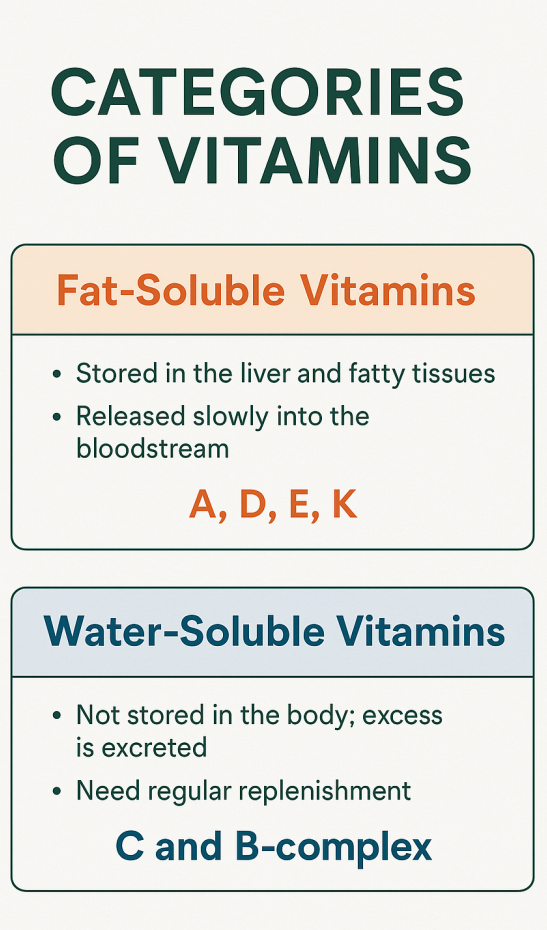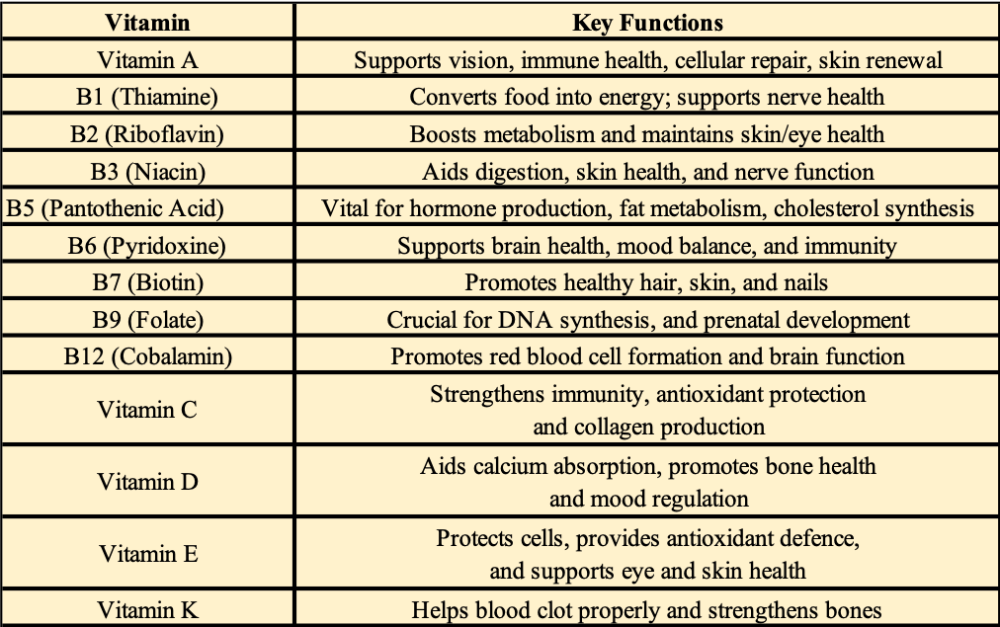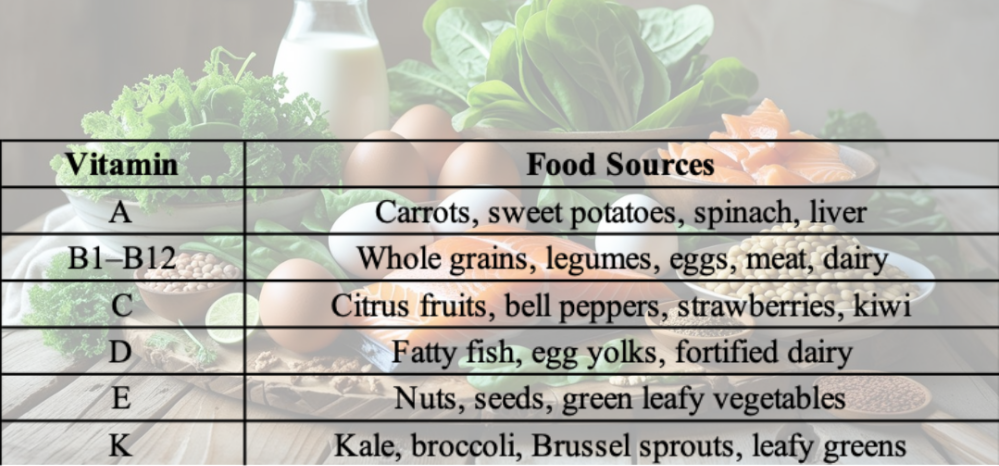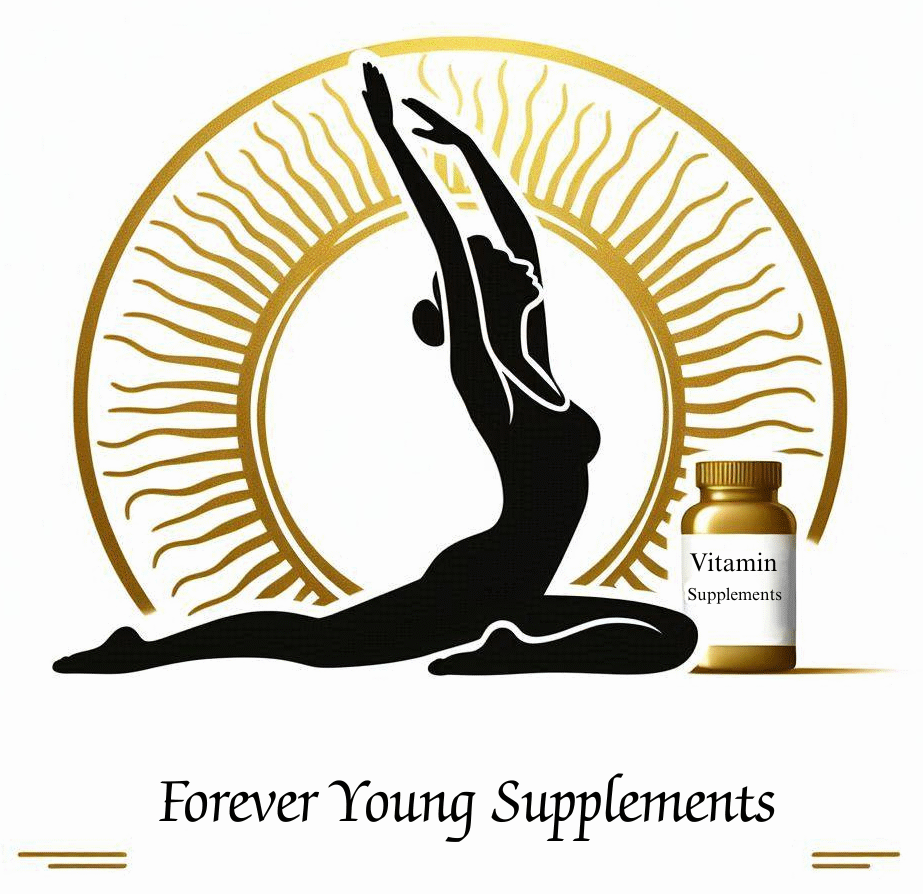Introduction: Why Vitamins Matter More Than Ever
In today’s fast-paced world, maintaining your health goes beyond just eating well.
It’s about nourishing your body at the cellular level. Vitamins are essential micronutrients that regulate critical functions like energy production, immune defence, and cognitive performance.
They don’t just help us feel good day to day. They build the foundation for long-term wellness.
Even minor deficiencies can lead to chronic fatigue, low immunity, or more serious health complications over time. Despite best efforts, many people fall short of daily recommended intakes through food alone, especially in diets high in processed or nutrient poor foods.
Preventative health begins with proper nutrition. Vitamins like C and E act as antioxidants, neutralizing harmful free radicals and reducing the risk of chronic diseases, including heart disease, osteoporosis, and neurodegenerative conditions.
As we age, our bodies become less efficient at absorbing nutrients and yet our need for them often increases. Older adults are especially prone to lacking vitamins B12, D, and K, which are vital for memory, bone density, and energy. Supporting healthy aging through vitamins can help protect against inflammation, vision decline, and loss of mobility.
At Forever Young Supplements, we believe optimal health starts with informed nutrition. Whether through a balanced diet or high quality supplementation, our mission is to help you reach your daily vitamin goals with science backed support, particularly for those like myself who are entering or are already in our senior stage of life.
What Are Vitamins? A Simple Yet Vital Definition
Vitamins are organic substances your body needs in small quantities to perform essential functions. They don’t directly provide energy, but they help unlock energy from food and fuel hundreds of biological processes.
From producing hormones to repairing tissues and building immunity, vitamins act as biochemical catalysts. They differ from other nutrients in key ways. Unlike minerals (inorganic) or amino acids (protein builders), vitamins are organic and uniquely sensitive to heat, light, and storage conditions.
Since most vitamins can’t be produced by the body (or only in trace amounts), a consistent dietary intake is essential. Without them, basic functions like cell repair, immunity, and metabolism falter.
It’s also important to distinguish vitamins from other nutrients:
- Vitamins are organic compounds that support enzyme function and repair.
- Minerals (e.g., calcium, iron) are inorganic and support bone strength, nerve transmission, and fluid balance.
- Amino acids, the building blocks of proteins, help rebuild muscle and enzymes.
Deficiencies can creep in silently. Feeling constantly tired? Dealing with frequent infections? Experiencing brittle nails or thinning hair? These might all trace back to insufficient vitamin intake. As we age, the risk only grows. Nutrient absorption naturally declines, making vitamins like D, B12, and K increasingly vital for seniors.
Categories of Vitamins: Soluble, Effective, and Essential
Vitamins fall into two major categories: fat-soluble and water-soluble.
Understanding how they are absorbed and stored can help you make more informed health choices.

Fat-Soluble Vitamins (A, D, E, K)
These are stored in fat tissue and the liver, making them available over time but which also poses a risk for toxicity is over consumed. These are best taken with meals containing healthy fats for proper absorption.
Water-Soluble Vitamins (C and B-Complex)
These dissolve in water and are not stored in the body, so they must be replenished daily. Excess amounts are excreted in urine and regular intake is therefore essential to avoid deficiency.
- Vitamin C – Boosts immunity and collagen formation
- B-Complex Vitamins – Power energy production and brain function
The Vitamins You Need and What They Do
Each vitamin plays a unique, irreplaceable role in your health.
Here’s a breakdown:

Where Do Vitamins Come From? Food vs. Supplements
Natural Food Sources
Eating a variety of whole, unprocessed foods is the best way to get vitamins. Whole foods provide more than isolated vitamins. They offer fibre, antioxidants, and co-nutrients that enhance absorption. Here’s where to find key vitamins naturally:

Why You Might Still Need Supplements
Even with a healthy diet, it can be hard to get everything you need—especially as you age or if you have dietary restrictions. Here’s why supplements can be so helpful:
Age-related changes: Older adults may absorb nutrients like B12, D, and K less efficiently.
Health conditions & medications: Can interfere with how your body uses vitamins.
Dietary choices: Vegans, vegetarians, or low-fat dieters may miss key nutrients.
Busy lifestyles: Let’s be real, in modern society no one eats perfectly every day.
That’s where targeted, high-quality supplements can make all the difference. They’re not a replacement for real food, but a smart way to fill in nutritional gaps.
Summary: The Power of Proper Nutrition
Vitamins may be small, but their impact on your health is massive. From energizing your cells to fortifying your immune system, they support a vibrant, resilient body and mind.
Balancing whole foods with high-quality supplements ensures you get what your body needs to thrive and not just survive.
Every Vitamin Counts
From powering your energy levels to protecting your bones and brain, vitamins are essential to feeling and functioning your best.
Here’s your action plan:
Know your vitamins and what they do
Eat a varied, whole-food-based diet
Consider supplements if your diet or lifestyle requires extra support.
At Forever Young Supplements, we believe wellness starts with understanding your body’s needs. Whether you are in your youth or entering your senior stage in life, nourishing yourself with the right vitamins is a key part of aging well and living vibrantly.

